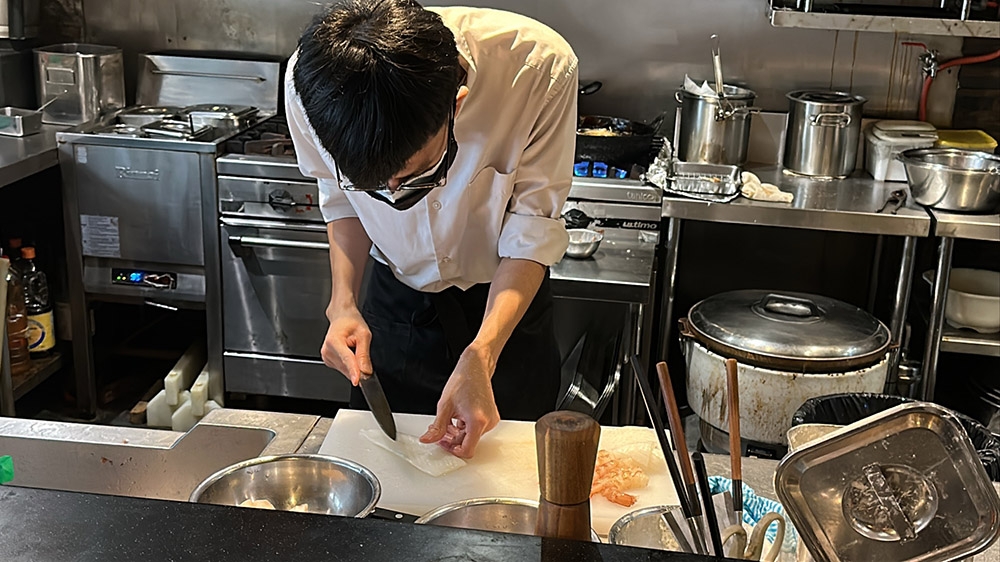COMMENTARY, March 15 — In a recent Instagram post @anneluxuryeats wrote that when she dined at a Michelin-starred restaurant in Taman Tun Dr Ismail, she was asked to not do a review.
She explained that when she clarified the rule banning reviews with the staff, she was informed, “It’s not for everyone but only for food reviewers or those influencers with a large following.”
This caused her to question the rule and she said, “I was quite turned off honestly because how can such a rule be imposed? And I’m not eating for free? I’m also a paying customer.”
This incident has certainly raised a debate about whether restaurants banning reviews by certain individuals is reasonable. Or even enforceable.
Food reviews play an important part in the F&B industry. Whether the opinion is expressed by an ordinary diner or the media or a social media influencer, reviews serve as a sort of check and balance for restaurants.
If the review is favourable, it leads to more diners visiting the place. While some reviews are even paid for by the restaurants, many are independent as in the case of @anneluxuryeats who paid for her own meal.
It’s not easy from the perspective of the restaurant owner to receive negative comments. Sometimes the tone of reviews can be brutal and may even come across sounding personal. Some diners may also make unreasonable requests that go against the restaurant’s own direction of how they serve their food.
One is reminded of The New York Times review on Per Se by Pete Wells back in 2016. In that review, he downgraded the restaurant from four stars to two stars and cited “the long-held perception of Per Se as one of the country’s greatest restaurants, which I shared after visits in the past, appears out of date.”
It was a shock to the restaurant industry as Thomas Keller of Per Se is well regarded as the leader of haute cuisine and many questioned how that review would change fine dining.
In good faith, Keller responded to the review by writing an open letter of apology to his customers, promising: “We are not content with resting on what we did yesterday.”
Restaurant reviews also act as an important guide to readers who use them when deciding whether they want to visit the place or not.
Whenever I look at a new place to try, I’ll trawl through Google reviews to see what people are saying. Then I hop over to social media and read the comments there.

Whether it’s a restaurant located in a hotel or a coffee shop, banning reviews is totally unenforceabe.
There are some people whose taste buds I trust and if they tell me a place is worth visiting, it’s worth considering. Lastly, after gathering all that data, I would look at the food pictures before finally deciding whether to try a place.
Of course, you as a discerning diner should also realise that things change. A place may not have the best reviews when they first open their doors but a few months down the road, receive much better reviews. Sometimes, they may have tweaked things after feedback from customers.
Even though there’s no right or wrong when it comes to reviews, banning reviewers and social media influencers from writing definitely encroaches on their rights. Even more so when the person is a paying customer as he or she is entitled to give an opinion on what was eaten.
It will also be hard to police the reviewers as in this age, almost every diner with a smartphone will be documenting their dining experience by photographing or doing a video of the dishes. And checking everyone’s phone is definitely a breach of privacy.
Some reviewers also keep a low profile to ensure the restaurant treats them like any other diner.
However, with social media influencers who must be visible on their accounts, it’s also easier to spot them the moment they walk in a restaurant.
How would the restaurant know if they are just visiting to dine there for a special occasion or actually there to review the place?
Nevertheless, a ban just sends out a wrong message to the public that the restaurant is acting unreasonably. And when one bans something, there will always be a reaction.
Take, for instance, this incident in Taiwan. A restaurant known as Fishers Diner at Kaohsiung made headlines in February this year when it banned TikTok and any TikTok influencers from its premises.
Taiwan News reported that their action to ban TikTok was due to the Sushiro incident in Japan where it was shared on TikTok how influencers licked the spoon in a communal container and rubbed a plate of sushi on a conveyor belt with a finger covered with saliva.
Since they enforced the ban, the Taiwanese restaurant has received backlash from diners who criticised the place requiring diners to get their phones checked before dining there.

A restaurant should be open to reviews just like how they open up their kitchens to diners.
Some have even started to leave one star reviews even though they have not dined there. In response to all this, the restaurant has clarified to say there won’t be any checking of phones and that they plan to take legal action against those who leave reviews without even dining in their eatery.
One wonders if the damage has been done already.
Hopefully restaurants here will bear in mind the consequences of such a draconian action to prevent restaurant reviews.
* Follow us on Instagram @eatdrinkmm for more food gems.













